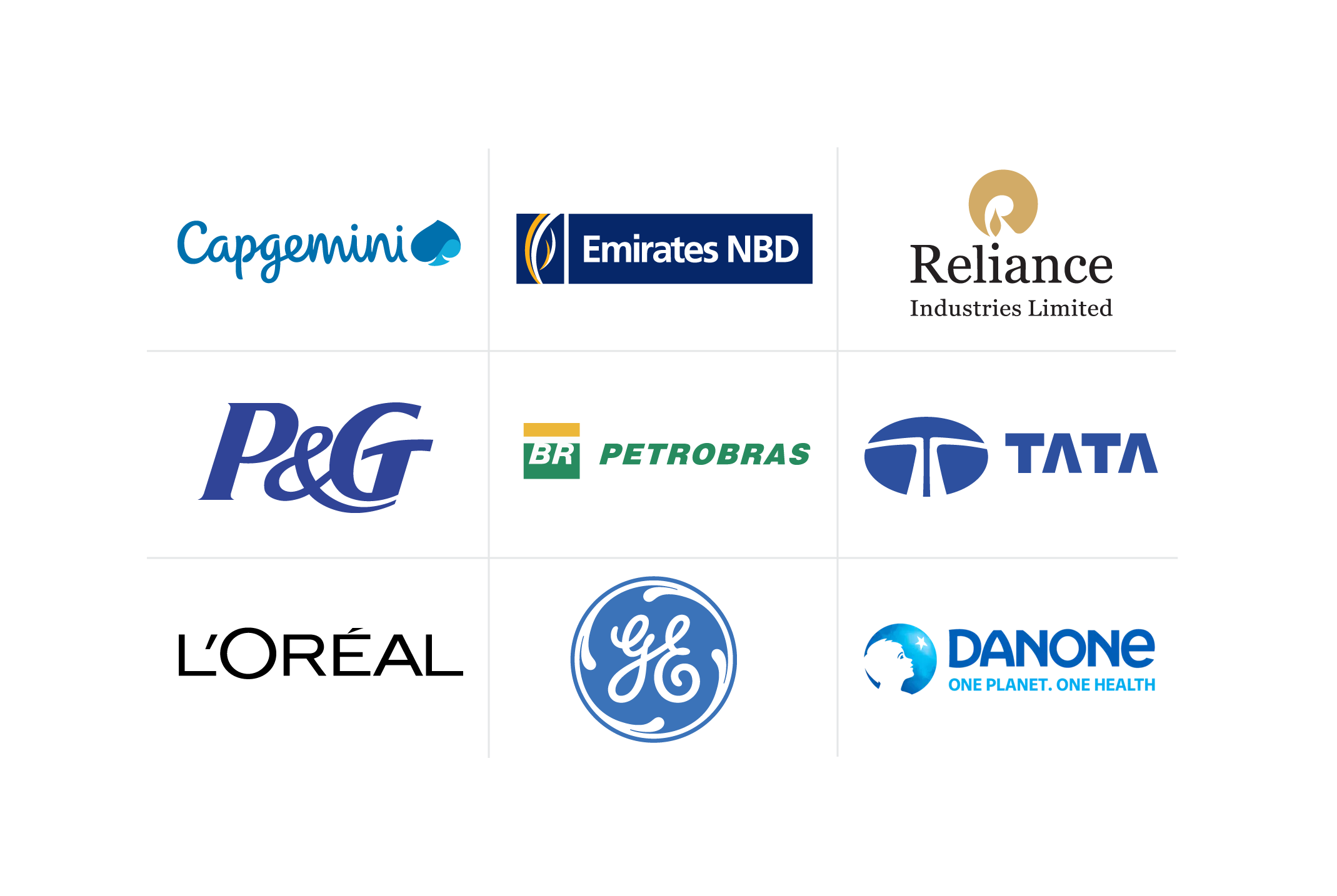Navigating a Hiring Freeze: Strategies for Companies in Challenging Times
A hiring freeze can help your organization through challenging situations, like economic uncertainty or global emergencies. Learn how to navigate a potential hiring freeze and support employee morale in the process.
![[Featured image] Two business colleagues walk down the hall while discussing the recent economic uncertainty and their company's decision to institute a hiring freeze.](https://d3njjcbhbojbot.cloudfront.net/api/utilities/v1/imageproxy/https://images.ctfassets.net/2pudprfttvy6/7aMx0gzHIaKxlC59w8KUkh/85394eade80ce38e1f9f598232ff9fa6/hiring-freeze-header-image-min_2.jpg?w=1500&h=680&q=60&fit=fill&f=faces&fm=jpg&fl=progressive&auto=format%2Ccompress&dpr=1&w=1000)
When you run a business, you know to expect the unexpected, and a hiring freeze is one way to keep your budget under control when something out of the ordinary occurs. It could be as big as a global emergency or something specific to your organization, like a budgetary issue. For example, in recent history, matters like the COVID-19 pandemic and the 2008 financial crisis have led to widespread hiring freezes. Either way, a hiring freeze means temporarily stopping the hiring process while you get the situation under control.
A hiring freeze can be helpful for any company, but it can significantly impact your employees and your organization. Clear communication with your staff and a strong strategy can help minimize that impact.
Continue exploring the connection between hiring freezes and economic uncertainty, and get advice on balancing the company’s needs with supporting employee morale.
What is a hiring freeze?
When an organization stops or slows the hiring process for all or some of its roles, it’s widely called a hiring freeze. The practice could range from not creating new positions during the timeframe to not replacing staff members who leave their current roles. Often, an organization enacts a hiring freeze to save money and avoid laying off current employees. It does not necessarily mean that the business is struggling; even some of the most successful organizations in the world use hiring freezes to help keep their operations running smoothly.
Reasons why you might implement a hiring freeze
Your organization might implement a hiring freeze for numerous reasons. They can range from external factors affecting an entire geographic location, like the country or even the world, to internal issues that only impact your organization. These reasons might include:
Reducing spending
Budgeting issues
Creating more liquid assets
Preventing layoffs
Economic uncertainty
Economic downturns
National or worldwide emergencies, like war, a pandemic, or a natural disaster
Restructuring the company
Evaluating existing talent during a merger or acquisition
Reducing staffing overcapacities
Taking precautionary measures against potential crises
Types of hiring freezes
All hiring freezes are not the same. Some organizations may enact a total hiring freeze, which means they will not hire new employees under any circumstances. Others might implement a partial hiring freeze, only hiring new employees for critical positions as needed or only hiring new people for specific departments. Sometimes, your organization may only hire temporary or independent contractors to fill roles rather than hire full-time staff members for positions.
Read more: Why Is Employee Engagement Important?
Pros and cons of a hiring freeze
Saving money by avoiding the expenses associated with onboarding new employees and taking a conservative approach that may prevent the need for layoffs during uncertain times are a few of the chief benefits of a hiring freeze. However, as with any major business decision, you’ll find a mix of advantages and disadvantages. Before implementing one for your organization, weighing the pros and cons and determining the best outcome for your business is best.
The advantages of a hiring freeze might include:
Compared to a layoff, a hiring freeze can boost employee morale.
Your organization may save money.
You have time to focus on workforce planning for the future.
It can help you retain the talent you might lose if you choose a layoff instead.
Your current talent may learn new skills by taking on additional roles.
Hiring freezes are usually temporary, so you can eventually return to regular business without facing significant changes or loss of employees.
Some of the disadvantages of a hiring freeze might include:
While a hiring freeze can boost employee morale, it can also negatively impact it if employees fear the company's future or feel insecure in their jobs.
Some employees may become overworked and suffer burnout as they take on additional tasks.
You may find yourself stuck with employees who lack the skills that you need,
You might lose revenue.
It can damage the brand reputation if your customers find out about it.
If your competitors discover it, a hiring freeze can make you appear weak and give them an advantage.
How a hiring freeze impacts your employees
A hiring freeze can have both positive and negative effects on your employees. Some may view it as better than a layoff and appreciate that they can keep their jobs. However, some may take on additional tasks or work overtime to compensate for the lack of hiring. Some employees, particularly those already frustrated with their jobs, may feel that the company is on a negative path, which may decrease job security and the potential for them to earn promotions. Prioritizing their feelings should be among the top priorities.
You have many options for supporting and lifting employee morale. For example, you may recognize their hard work with a reward, like allowing them some flexibility in their schedule or working remotely or on a hybrid schedule rather than coming to the office daily. You can also use it to provide upskilling opportunities like mentoring and additional training. Strengthening your current pool of talent can also benefit your organization.
Communicating with your employees
Clear, consistent communication with your staff should be one of your top priorities during a hiring freeze. Be open and honest with them about the hiring freeze, how long you expect it to last, and the reasons behind it to help ease fears and encourage them to keep doing their best. Also, create an environment in which it’s safe for employees to share feedback and ask questions when they have concerns. Ensure the lines of communication remain open during the entire process.
How a hiring freeze impacts your company
A hiring freeze can also significantly impact your organization as a whole. If your employees are happy, they typically perform better and are more willing to remain at the company. You may have to delay specific projects or overall growth. If word gets out, it can impact your reputation among future employees, customers, and competitors. Your managers and supervisors may need to pay more attention to challenging behaviors to avoid losing an employee they can't replace.
Tips for creating a hiring freeze strategy
One way to mitigate the negative impacts of a hiring freeze on your organization is to create a quality strategy going into it. For example, determine how you will prioritize your employees and their happiness, as well as how you can communicate with them clearly and transparently before you implement the freeze. Other tips for creating a strategy might include:
Find ways to optimize how your employees work, such as redefining roles and redistributing workloads.
Focus on technology and automation to fill gaps.
Use internal recruitment to fill critical positions.
Prioritize critical roles in the organization.
Find ways to increase and support employee engagement.
Create a strategy for hiring once the freeze ends.
Preparing for the post-hiring freeze period
During the freeze, begin preparing for the post-hiring freeze period. For example, you might use this time to review your current recruitment strategies and determine what works and what doesn't with your current hiring process, how you advertise jobs, and how you screen candidates. You could also leverage a hiring freeze to reflect on your current business and operations practices as a whole and look for places where you can do better or ways to optimize your processes.
Additionally, consider building your network so that when you are ready to hire again, you have a new list of potential contacts at the ready. Stay in contact with people you might want to hire when the freeze is over, and take time to nurture your current talent pool.
Read more: Top Strategies for Retaining Talent Today
Consider investing in mentorships, training and development, upskilling, online courses, and other ways that you can help your employees build new skills. This way, you can focus on internal recruitment in the future rather than only searching for talent through external sources.
Getting started with Coursera
A hiring freeze is an excellent opportunity to focus on revamping your current hiring practices. One way to do this is by providing your human resources team and other staff members with additional training and education. Consider human resources and hiring courses such as Recruiting, Hiring, and Onboarding Employees, offered by the University of Minnesota; Hiring Practices from the University of California, Irvine; and the University of Maryland, College Park’s Successful Interviewing.
Support internal mobility and prepare workers for in-demand, digital jobs with Career Academy from Coursera. Featuring a curated catalog of guided tutorials and projects focused on high-value digital skills and tools, Career Academy offers competitive career development opportunities with training programs from industry leaders like Google, Salesforce, Intuit, Meta, and Ashok Leyland, among many others. Explore Coursera for Business to learn how to provide the technology training your business needs to be competitive.

This content has been made available for informational purposes only. Learners are advised to conduct additional research to ensure that courses and other credentials pursued meet their personal, professional, and financial goals.

